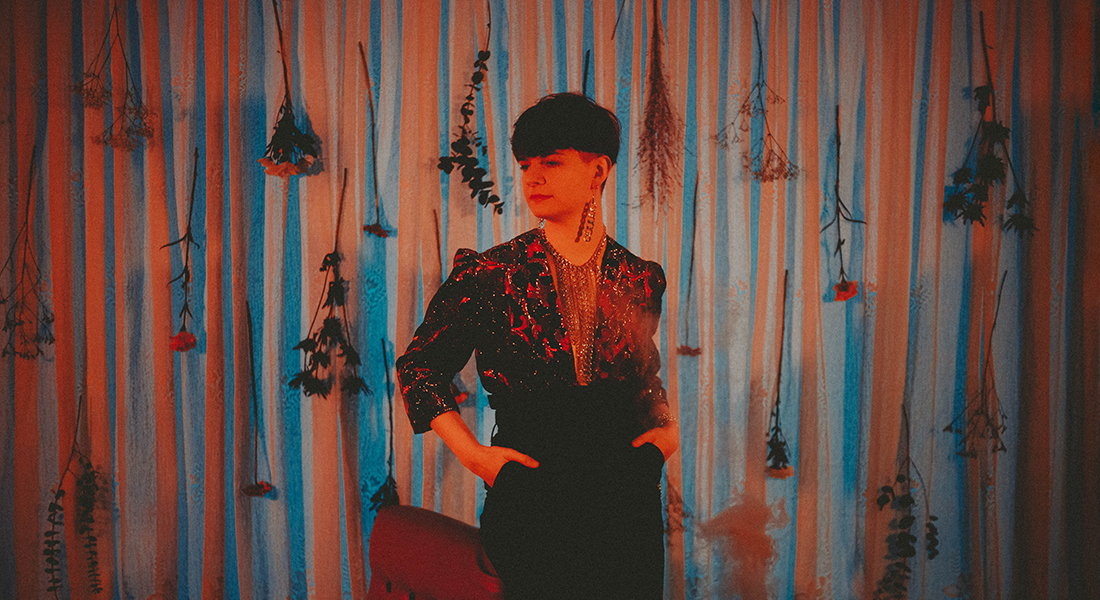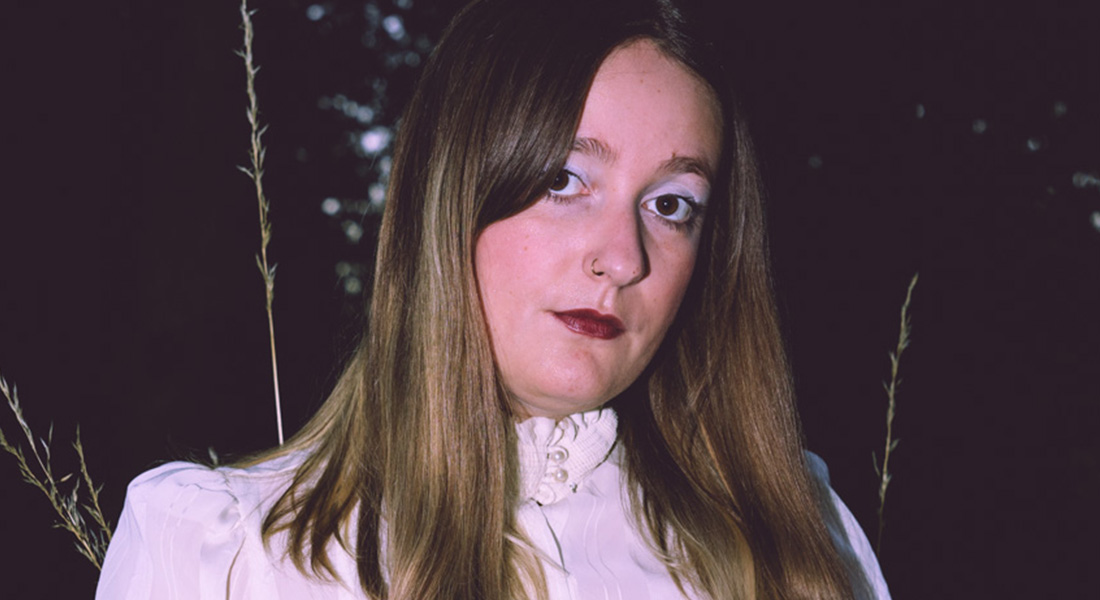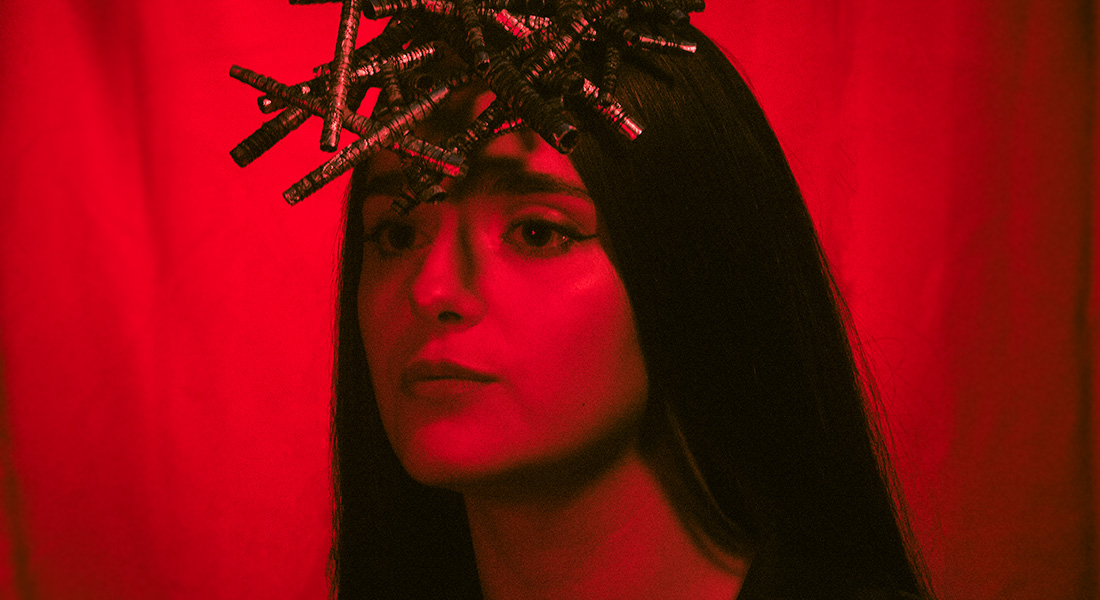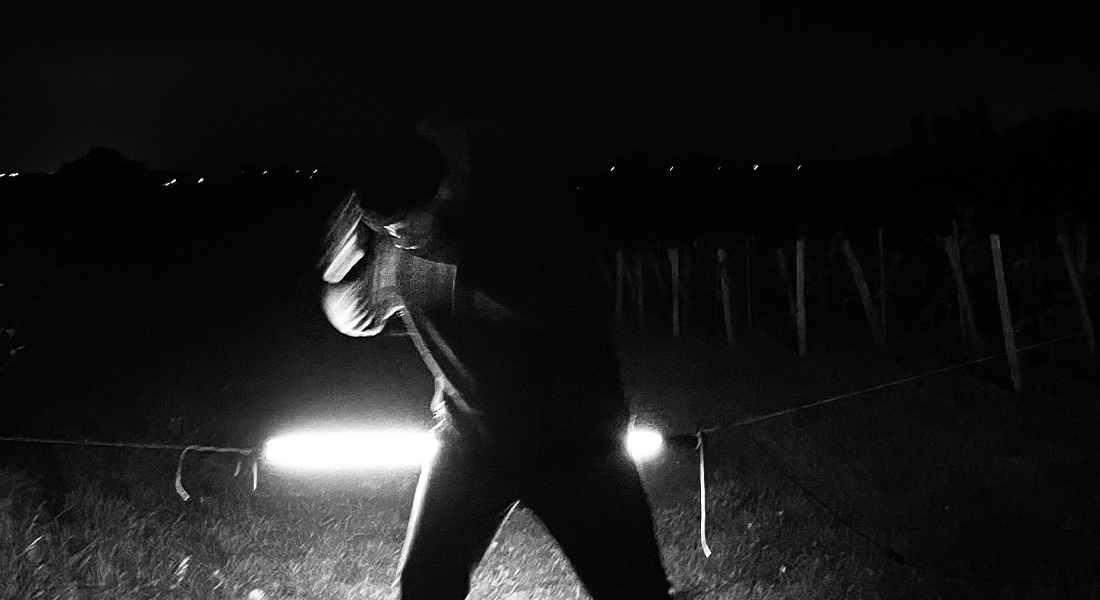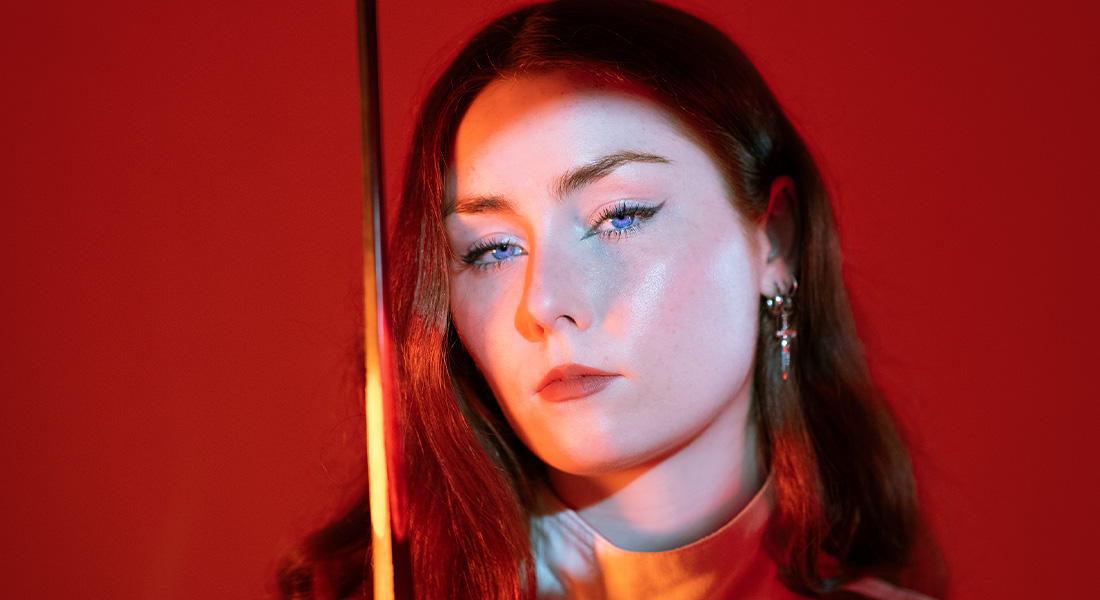If we had to use only one word, or maybe only one sentence to describe Comae’s first single, we could easily say that it is characterized by a heightened sensitivity that is able to translate, in prosaic poetry, the tortured emotions that play out deep within the hurt souls. It is between two minimalist but terribly emotional piano chords that Comae’s voice takes place in order to tell, softly and metaphorically, the story of a traumatic event that happened at night – and all this is also to be seen in the music video that will come out with the single, in a city known to all, which seems timeless in the video. Listen to it below before its official release on Friday, March 24th!
Simple and of a rare accuracy, the few piano chords that give the song its shape and the music video come to support Comae’s emotional and powerful voice. A seemingly fragile sensitivity expresses painful events through poetic metaphors ; in the video, it is during a short introduction that Comae, in the foreground, speaks out before taking on her artistic role. Shot at night, in 4:3 format, and with this characteristic grain we today call “vintage”, Comae walks through the streets of Paris at night, sublimating the melancholic atmosphere of this piano-voice ballad.
In order to celebrate this very first release, we took a little time to chat with Comae and learn more about this song and what’s in store for the near future.
“Je veux la nuit, celle qui trouble l’esprit”
– La Nuit – Comae
1. Hello Comae and thank you for agreeing to do this premiere with us ! To start off, can you introduce yourself for those who might not know you yet ?
Hello and thank you for this feature, I’m thrilled! I’m Comae, a French singer-songwriter and performer, and I’m releasing my first single, “La Nuit,” this Friday, on March 24th. I write melancholic pop, mainly in French, which I illustrate on the piano and with a multitude of vocal harmonies.
2. Before we dive into your song and music video, I know that you studied music in London, and that among your influences are artists like Kate Bush and Polnareff – which is evident in both the sensitivity and mastery of your voice. How did you start writing and singing?
I have been playing the piano since I was very young and quickly connected singing to my practice of this instrument. I was already writing a lot, but in longer formats. My first dream was to be a writer, or at least to tell stories. I still do that now, but in a different format!
As for musical composition, it came in my first year of music degree in London. In the first writing class, when the teacher asked “who already writes their own songs?” and everyone in the class raised their hand except for me… I started working on it that very evening. And once the pressure of the first draft was over, it became my primary means of expression. Writing is like a muscle that we always have to work on. Learning to pull stories out of every moment, even if it doesn’t always end up in a song.
I have been playing the piano since I was very young and quickly connected singing to my practice of this instrument. I was already writing a lot, but in longer formats. My first dream was to be a writer, or at least to tell stories. I still do that now, but in a different format!
As for musical composition, it came in my first year of music degree in London. In the first writing class, when the teacher asked “who already writes their own songs?” and everyone in the class raised their hand except for me… I started working on it that very evening. And once the pressure of the first draft was over, it became my primary means of expression. Writing is like a muscle that we always have to work on. Learning to pull stories out of every moment, even if it doesn’t always end up in a song.
3. For your song “La Nuit”, which will officially hit YouTube and streaming platforms tomorrow, you talk about a painful event ; without necessarily going into details if the question is too personal : what made you want to tell your story in a song?
Beyond just wanting to share it, it was a need to release this discomfort from my brain. “La Nuit” is also my first song in French, and I often say that because I don’t think I could have written and sung it in any other language than my mother tongue. The words had to resonate louder than my previous compositions and I had to dig a little deeper into my pain.
Once the pain had passed, after a few years, “La Nuit” became a song that reminds me of what I went through, what I survived. It is a bittersweet memory of a dark period and the confirmation that it is behind me.
When I wrote “La Nuit”, I was also in a period where I was looking for a lot of stories from women who had experienced the same painful event as me. I needed to find myself in these books, in these songs, in these podcasts to know that I was not alone in experiencing this. I like the idea that maybe this song can resonate with some people.
Similar to Comae : Emotional song ahead : French artist Fêlure works with November Ultra on “July”, a highly emotional alternative ballad
4. And your song is both related to a personal event as well as to a particular moment of the day : nighttime. What is your relationship with this singular atmosphere?
For me, the night is a constant ambivalence and that’s what comes out in this song.
Personally, I feel like it’s the hours of the day that belong to me the most. Those moments where I can, without any form of guilt, focus on myself and write, make music, look at the stars, and take care of myself. In public spaces, this sense of belonging disappears, at least when you’re a woman, and that’s actually what we tried to highlight in the music video with Lena Haque, the video director. We wanted to offer a different perspective on one of the deepest fears of all young women, the fear of walking alone at night in a deserted city. When women are asked what they would do in a world without men for 24 hours, their main response is walk alone at night.
5. Also, I wanted to ask a question about your music video : I see that it was recorded in Paris, and the aesthetics – which Paris accentuates – have a vintage tint to them. Why did you make this artistic choice?
This choice can be explained in several ways.
First of all, with Lena Haque, the director, we wanted to draw inspiration from the nocturnal and swirling metropolises found in Wong Kar Wai’s films (Chungking Express, Fallen Angels) and Nicolas Winding Refn’s films (Drive, Only God Forgives), while maintaining the cocoon of softness that film gives us.
Then, the idea was to give substance to the trauma that I had experienced and represent it through the figure of a young woman who follows me relentlessly, both in the street and then in my room. We wanted Paris illuminated by all its lights and almost timeless to serve as a way to contrast with the underlying violence of this nocturnal walk. A bit like the song, which was arranged to offer a setting for the lyrics.
6. I also want to mention your commitment to the feminist cause: you are the co-president of an association called Les Aliennes – can you tell us how this political and feminist role impacts your music or your musical project?
The Les Aliennes association highlights women in culture, and it is indeed a commitment that is dear to me. The team for the “La Nuit” music video was composed of 100% skilled female technicians, and I am very proud to have been able to work with them on this first project.
Since September, I have also been spearheading an open stage at FGO Barbara, and it is a pleasure to see a network of female artists who support and encourage each other emerge from it. This project impacts my music because we are taught too quickly to envy each other between women, especially in the music industry where we often hear that there is not enough room for everyone. I have decided, and I am not the only one, that I prefer that we all lift each other up!
7. Finally, there is always a question that I like to ask at the end of an interview: is there an artist that you are following closely at the moment and why?
Oh, the most difficult question! I hesitated for a long time but I think I’m going to say Lizzy McAlpine. Her second album had a huge impact on me last year and I’m still upset that I missed her at La Maroquinerie last November. She has a pretty amazing vocal technique and I greatly admire her songwriting. In ‘doomsday’ she takes us on a funeral-like journey with a hint of the end of the world, enough to write a whole novel about it!
Comae will be found starting from March 24th on all streaming platforms. In the meantime, you can follow her on Instagram !



